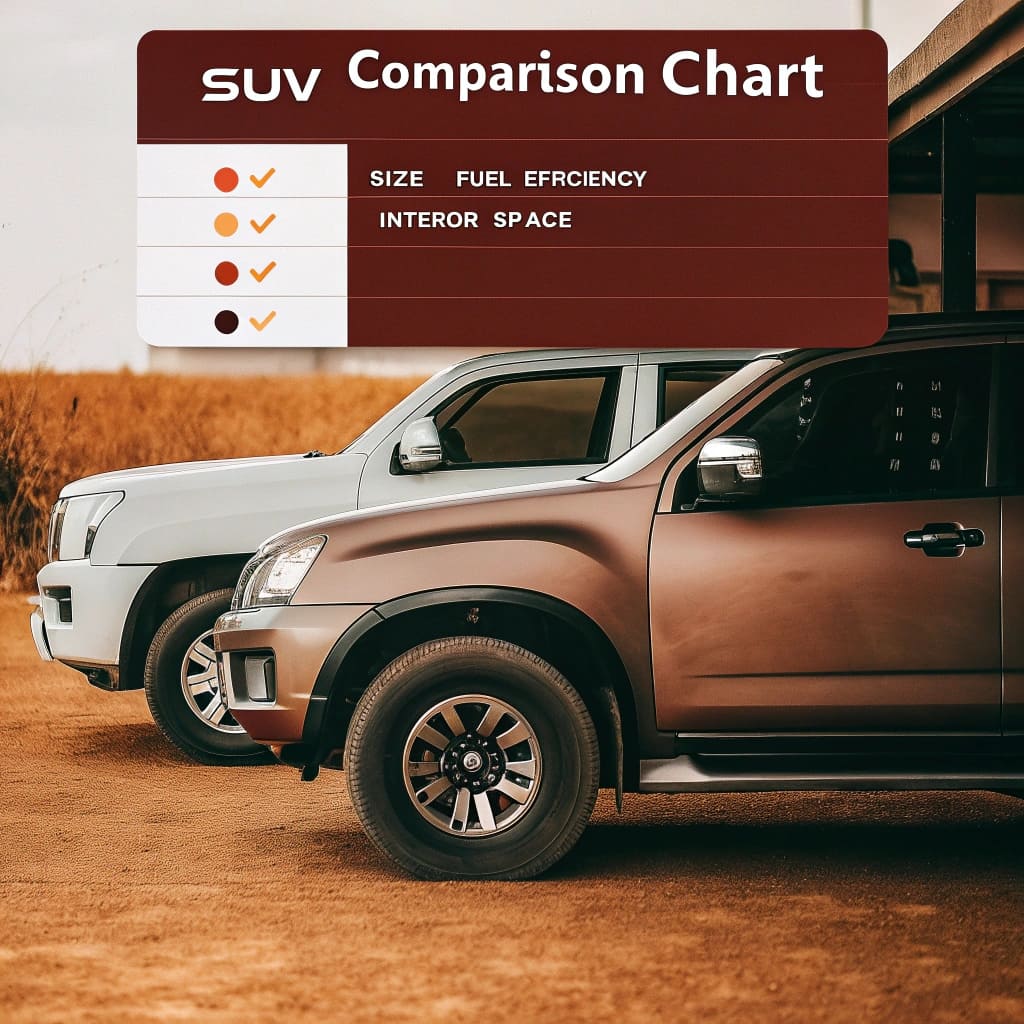If you’re thinking about buying a Jeep Renegade—or already have one—you’ve probably asked yourself:
How many miles can a Jeep Renegade actually last?
Great question! Let’s break it all down in a clear and simple way, with real numbers, helpful advice, and honest stories from Renegade owners who’ve been there.
How Long Do Jeep Renegades Last?
On average, a well-maintained Jeep Renegade can last anywhere between 100,000 and 150,000 miles. That’s about 7 to 10 years of solid, reliable driving.

But here’s the cool part:
Some Renegades have gone way beyond that!Real Example: A 2017 Jeep Renegade owner shared on Reddit that their SUV hit 225,000 miles—just by sticking to regular oil changes and preventive maintenance. That’s pretty impressive for a compact SUV!
What Impacts the Lifespan of a Jeep Renegade?
Now, if you want your Renegade to stick around for the long haul, there are a few key things to keep in mind. Let’s walk through them one by one.
Maintenance = Longevity
This one’s a biggie. If you skip oil changes or ignore warning lights, you’re basically inviting problems.
Here’s what regular maintenance should look like:
- Routine oil and filter changes
- Tire rotations every 6,000–8,000 miles
- Brake checks to avoid wear
- Transmission fluid and coolant top-ups
- In short: Stay on schedule = fewer breakdowns.
Does Your Driving Style Matter?
The way you drive affects how long your Renegade will last.
If you’re always slamming the brakes or speeding through potholes, your vehicle’s parts will wear out faster.
Instead:
“To wrap it up—try to steer clear of the 2015, 2016, and maybe even the 2017 models. Unless the previous owner really maintained it well, those years can be risky.”
Where You Live Plays a Role:
Your local climate can be a silent killer. Snow, road salt, humidity, and intense heat can slowly damage your Renegade’s undercarriage and key components.
Here’s how to fight back:
- Wash the underbody often (especially in winter)
- Use rust protection sprays
- Park in a garage when you can
A little prevention goes a long way.
Also Read: https://offtoroad.com/do-jeep-wranglers-take-regular-gas/
Model Year Quality:
Not all Renegade years are created equal.
Here’s a quick breakdown:
- 2015–2016 models had more issues—especially with transmissions and electronics
- 2018 and newer Renegades tend to be more reliable, thanks to software and component upgrades
So, if you’re shopping used, aim for a newer model with a clean service record.
Use Quality Parts:
It might be tempting to save money on parts, but cheap replacements often lead to expensive repairs.
Always go with:
- OEM (Original Equipment Manufacturer) parts
- Or trusted, high-quality aftermarket options
You’ll thank yourself later.
Want to Hit 200,000+ Miles? Here’s How
If you’re aiming for long life out of your Renegade, these simple habits really do make a difference:

- Stick to the service schedule
Keeps your engine and systems in top shape - Use synthetic oil
Offers better engine protection, especially over time - Rotate tires every 6,000–8,000 miles
Promotes even wear and smoother handling - Check and top off fluids regularly
Prevents overheating and reduces transmission wear - Fix small problems early
Stops minor issues from turning into expensive repairs - Don’t overload your Jeep
Less weight means less stress on your engine and suspension
Buying a High-Mileage Jeep Renegade: Good or Bad Idea?
It depends! A Renegade with over 100,000 miles can still be a smart buy, but only if it’s been taken care of.
Before you sign the papers:
- Ask for a full service history
- Get a trusted mechanic to inspect it
- Watch for smooth transmission shifts
- Check under the hood for rust or leaks
When in doubt, walk away. But if everything checks out—it might be a great deal.
Common Issues That Might Pop Up:
No car is perfect, and the Renegade has its quirks—especially in older models. Here are a few things to look out for:
| Problem | Models Affected |
| Transmission jerking | Mostly 2015–2016 models |
| Electrical bugs | Touchscreens and sensors |
| Coolant leaks | Older Renegades |
| Turbo wear (in turbo trims) | Around 100k miles or later |
Catch these early, and you’ll avoid bigger headaches.
Also Read: https://offtoroad.com/how-much-does-it-cost-to-charge-a-jeep-4xe/
What Real Owners Are Saying?
- My 2017 Renegade just hit 225,000 miles—still runs great with regular oil changes!” – Reddit User
- I do oil changes every 5k miles. Currently at 132,000 miles and no major problems. – Jeep Forum Member
- My transmission failed at 95k miles. I learned the hard way—always keep up with fluid changes.” – Owner Review
Final Thoughts: Is the Jeep Renegade a Long-Lasting SUV?
Yes—absolutely!
If you’re looking for a compact SUV that can go 150,000 miles or more, the Jeep Renegade is a solid pick. But it all comes down to how you treat it.
Stick to routine maintenance, drive smart, and handle issues early—and your Renegade can keep you rolling for years to come.
So whether you’re just thinking about buying one or already have the keys in hand, remember:
Take care of your Renegade, and it’ll take care of you—mile after mile.
What Is the Longevity of a Jeep Renegade?
If you’re like me and thinking long-term about your ride, you’ve probably wondered—how long does a Jeep Renegade actually last?
Let’s talk about that in simple words, no confusing car jargon—just real, honest info.
Watch Out for These Common Problems?
Of course, no car is perfect—and the Jeep Renegade does have a few common issues, especially as it gets older:
- Transmission troubles, mostly in earlier model years
- Electrical gremlins, like dashboard lights or sensor issues
- Turbo wear, especially in the 1.3L engine, if oil changes are skipped
Don’t let that scare you though. Most of these can be managed easily if you stay on top of regular check-ups.
A Few Simple Tips to Keep It Running Strong:
If you want your Renegade to stick with you for years (and miles), here are a few friendly tips:
- Don’t skip your service appointments—they really do matter
- Use quality oil and fluids, even if it costs a little more
- Wash it often, especially in winter, to avoid rust
- Pay attention to weird sounds—your Renegade talks, you just have to listen
- Drive with care, especially if you like going off-road now and then
Wrapping It Up – Is the Jeep Renegade Built to Last?
At the end of the day, the Jeep Renegade can be a reliable ride if you take care of it. Most owners get well over 150,000 miles, and some go way beyond that.
So if you’re already driving one—good job! Just keep it maintained.
And if you’re thinking about buying—look for a well-kept one with good service records, and you’ll likely have a solid SUV for the long run.
Is the Jeep Renegade Fuel Efficient?
If you’ve got your eye on a Jeep Renegade—or maybe you already drive one—you might be wondering:
“Is it actually good on gas?”
Let’s break it down in simple words so you know what to expect before hitting the road (or the gas station).
Also Read: https://offtoroad.com/are-jeep-wranglers-rear-wheel-drive/
How Fuel-Efficient Is It Really?
Honestly? The Jeep Renegade is fairly fuel-efficient, especially when you consider it’s a small SUV with some off-road spirit.
It’s not a hybrid, and it won’t beat a tiny hatchback in a fuel-saving contest—but it holds its own pretty well for its size and purpose.
What Kind of MPG Can You Expect?
Here’s what most drivers see in real life:
- Front-Wheel Drive (FWD) versions – like the Sport or Latitude:
Around 24 MPG in the city and 31–32 MPG on the highway - Four-Wheel Drive (4WD) versions – like the Trailhawk or Limited:
Around 22 MPG in the city and 27–29 MPG on the highway
So if you’re mostly commuting or running errands in the city, expect mid-20s. On long highway drives? You’ll likely hit the low 30s.
But Wait—There’s More to It:
Now, gas mileage doesn’t just depend on the car—it also depends on how you drive. Here are a few things that can affect your Renegade’s fuel efficiency:
- If you’re a fast starter or hard braker, you’ll burn more fuel
- Using 4WD a lot or going off-road? That uses more gas too
- Even small things like low tire pressure or carrying too much weight can hurt your MPG
So, yeah—your driving habits really matter more than you’d think.
How Does It Compare to Other SUVs?

Let’s be honest—there are some small SUVs that get better gas mileage, like the Toyota Corolla Cross or Honda HR-V. They’re great if you’re looking for a fuel-saver.
But here’s the thing: those SUVs are built more for smooth city drives.
The Renegade, on the other hand, has that rugged Jeep DNA—it’s made to handle a bit more adventure, which naturally means a small trade-off in fuel efficiency.
Jeep Renegade Years to Avoid – Let’s Talk Honestly:
If you’re thinking about buying a Jeep Renegade—or even just curious about its track record—you’re probably wondering:
Are there any years I should avoid?
And honestly? Yes, there are a few. Like many first-generation vehicles, the Renegade had a bit of a rocky start. So before you sign those papers, here’s what you need to know—straightforward and easy to digest.
2015 Renegade – The One to Be Careful With:
Let’s start at the beginning.
The 2015 Jeep Renegade was the very first model year—and like many “first-year” cars, it came with more than a few growing pains.
- Drivers reported jerky shifting, especially with the 9-speed automatic transmission
- There were tons of electrical issues—from random warning lights to screen glitches
- And in some unlucky cases, even engine stalling or failure
It might look like a great deal on paper, but 2015 is definitely a year you might want to skip unless it has a flawless history and very low mileage.
2016 Renegade – Still Working Out the Kinks:
You’d think things would get better the following year—but unfortunately, 2016 still had many of the same problems as 2015.
Owners often complained about:
- The check engine light turning on for no clear reason
- Ongoing transmission issues
- And the engine sometimes stalling at low speeds
So if you’re looking for a reliable daily driver, this year might leave you feeling a little frustrated.
Also Read: https://offtoroad.com/is-a-jeep-a-truck-or-suv/
2017 Renegade – Slightly Better, But Still Not Great:
By 2017, things were starting to improve—but some issues still lingered.
While not as problematic as 2015 or 2016, you could still run into:
- Electrical bugs (especially with sensors and lights)
- Rough shifting
- And occasional engine hesitation when accelerating
So it’s better than the earlier models, but still not the most worry-free option out there.
Better Jeep Renegade Years to Choose From:
Okay, now for the good news!
If you’re still thinking of getting a Renegade, there are some years that stand out for being much more reliable.
- 2018 and newer – By this point, Jeep had ironed out many of the earlier issues. The ride feels smoother, and the electrical bugs? Way less common.
- 2021–2022 models – These are some of the best yet. They’ve got updated tech, better reliability, and improved safety features.
So if you’re aiming for peace of mind, these newer models are definitely worth a look.
A Quick Tip Before You Buy:
No matter what year you go with, here’s a little advice from one car lover to another:

- Always check the vehicle’s history report (like Carfax)
- Ask if they have maintenance records—they tell you a lot
- And if you can, get a trusted mechanic to inspect it before you buy
It might cost a little upfront, but it could save you from a big headache down the road.
Final Thoughts:
So, to wrap it up—try to steer clear of the 2015, 2016, and maybe even the 2017 Renegade, unless the previous owner really took good care of it. If you want fewer issues and a smoother experience, go for 2018 or newer.
The Renegade can be a fun little SUV with tons of personality—but like any vehicle, picking the right year makes all the difference.
FAQ’s
1: Is the Jeep Renegade good for long-distance road trips?
Absolutely—but let’s break it down. If you’re planning a highway adventure, the Renegade can definitely handle it—especially the newer models. It’s comfortable for long drives, and trims like the Limited or Trailhawk come with nice features like Apple CarPlay, cruise control, and supportive seating.
2: How expensive is it to maintain a Jeep Renegade?
Great question—because nobody likes surprise repair bills. The good news is, the Renegade isn’t too hard on the wallet when it comes to routine care. On average, owners spend about $400 to $600 a year on things like oil changes, brakes, and fluid top-ups.
3: Does the Jeep Renegade hold its value over time?
So, let’s be honest—the Renegade holds its value decently, but it’s not at the top of the resale game. Compact SUVs in general tend to lose value a bit quicker, especially if they’ve had repairs or missed service.
4: Can the Jeep Renegade handle snow and rough weather?
Definitely—especially if you’ve got a 4×4 version like the Trailhawk. One of the Renegade’s big wins is how well it performs in winter or muddy conditions. With features like Selec-Terrain® and hill descent control, it’s built for more than just city streets.
5: What can a Jeep Renegade tow?
If you’re wondering whether you can tow with a Renegade—the answer is yes, but within limits. When properly equipped, most Renegade models can tow up to 2,000 pounds. That’s perfect for smaller trailers, jet skis, or bikes—not so much for big boats or campers.
Conclusion
At the end of the day, the Jeep Renegade can absolutely be a long-lasting ride—as long as you take good care of it. Most owners easily reach 150,000 miles, and some even hit 200,000+ with consistent maintenance and smart driving.
Yes, it has its quirks—especially in the early years—but newer models have come a long way. If you stay on top of service, use quality parts, and drive with care, your Renegade will keep rolling strong for years.
So go ahead—take care of your Renegade, and it’ll take care of you. Whether you’re planning road trips, commutes, or off-road escapes, this little SUV is ready to go the distance.